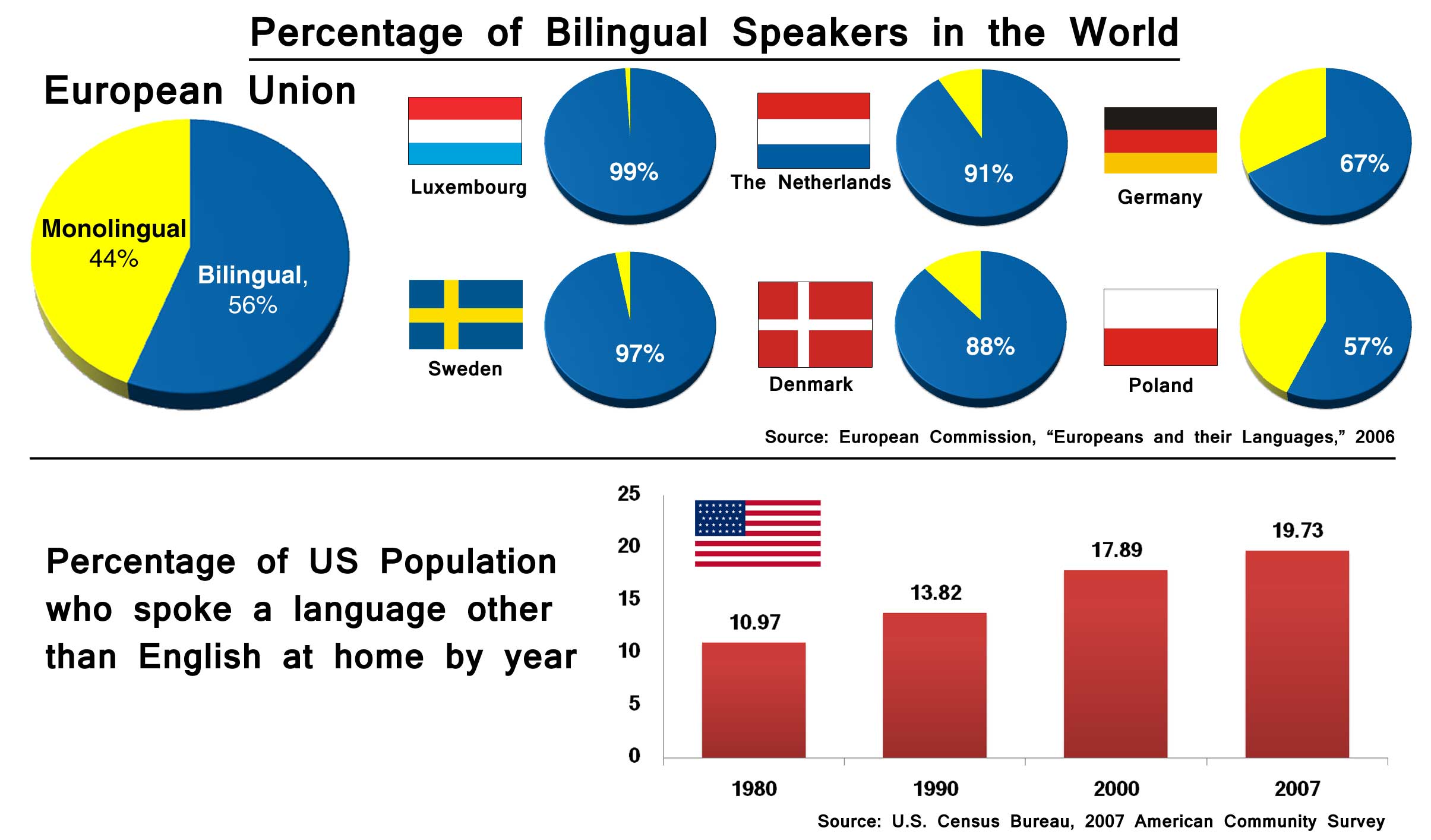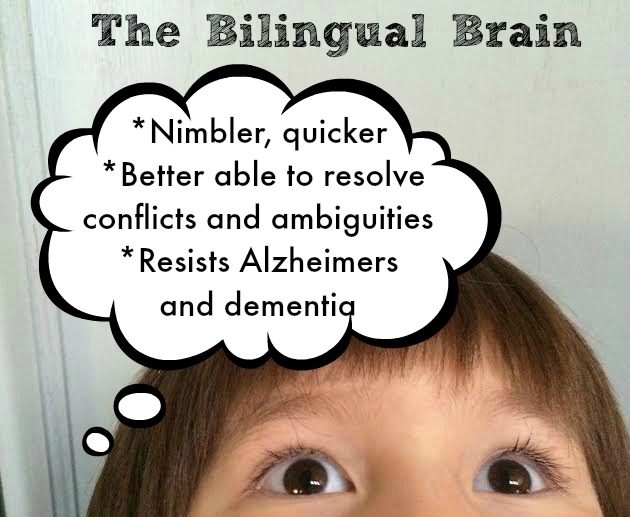Many Americans grow up monolingual and have their first brush with the difficulties of learning another language in high school or adolescence, tripping their tongues over foreign syllables and syntax. But many other Americans (and people across the globe) grow up learning two or more languages, becoming fluent in more than one language in the span of the first five years. In 2013, Time magazine reported on the The Power of the Bilingual Brain:
“New studies are showing that a multilingual brain is nimbler, quicker, better able to deal with ambiguities, resolve conflicts and even resist Alzheimer’s disease and other forms of dementia longer. All of this is prompting public schools to implement language-immersion programs for kids as young as kindergartners.” Time, July 18 2013
Despite proven benefits to the brain, skeptics remain: if second language acquisition is so difficult for adults to master, how can we expect babies and young children to handle it? Again, research shows bilingual and multilingual children are able to master two or more languages in the time it takes a monolingual child to learn a single language.
Within the same time frame as it takes monolingual children to learn one language, bilingual children learn two languages and become adept at using them in socially diverse and appropriate ways. Early Childhood News
This excellent article debunks many of the commonly held myths and misconceptions about bilingual acquisition in early childhood, and fosters the idea that every child can become proficient in more than one language, a fact supported by global statistics. In the European Union, 56% of the population is bilingual versus a slim 19.73% in the US.

You can learn more about the cognitive benefits of being bilingual through Dana.org, a foundation committed to advancing brain research. One finding parents of young children might find compelling: bilingual brains have better developed control mechanisms, developed by the continual inhibition of one language while using the other. This strengthens the executive functions of the brain which can help the ability to shift focus and improve attention. Bilingualism has lifelong benefits: babies as young as seven months have be shown to benefit, with protective benefits to the brain extending to seniors. We love bilingual education!


Leave a Reply